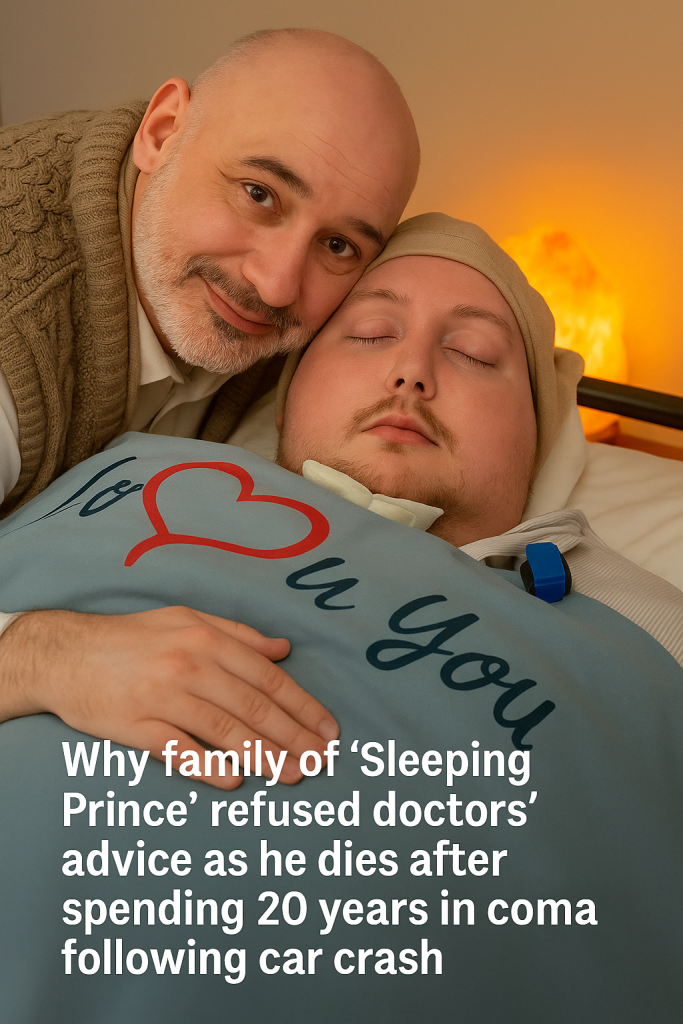In a heartbreaking end to a two-decade-long vigil, the young man known to many as the “Sleeping Prince” has passed away after spending 20 years in a coma following a tragic car accident at age 15. The family’s unwavering devotion and their decision to refuse certain medical interventions throughout his prolonged coma have sparked widespread discussion about the complexities of long-term coma care and family autonomy in critical medical decisions.
At just 15 years old, the young man was involved in a severe car crash that left him with catastrophic brain injuries, plunging him into a coma that lasted for 20 years. Throughout these two decades, the family maintained a steadfast presence at his bedside, lovingly caring for him and hoping for a recovery that never came. He earned the nickname “Sleeping Prince” for his peaceful, almost serene state while unconscious.
Medical teams caring for the patient reportedly recommended a range of interventions aimed at prolonging life and preventing complications associated with long-term coma patients, including advanced respiratory support and feeding methods. However, the family chose to decline some of these suggestions, prioritizing quality of care and comfort over aggressive treatments. This choice highlights the complex ethical terrain families navigate when balancing hope against medical realities and prolonged suffering.
Experts emphasize that each coma case is deeply individual, with no universal approach. The family’s decisions reflect their intimate understanding of their son’s condition and values, underscoring the importance of respecting patient rights and family wishes in critical care. It also raises questions about the psychological and emotional toll on caregivers who remain bound to hope for decades.
In recent weeks, the young man’s condition worsened notably, leading to his passing in a hospital surrounded by loved ones who had never given up. The family’s decision to keep him off certain aggressive interventions was respected throughout, a testament to their advocacy and the healthcare team’s collaboration.
The story of the “Sleeping Prince” resonates far beyond this family’s ordeal. It serves as a poignant reminder of the human stories behind clinical cases, revealing the resilience of those waiting in the wings, the courage required to make difficult choices, and the profound impact of love that endures despite the silence of coma.
As conversations about medical ethics continue to evolve, cases like this will influence policies on patient care, family involvement, and end-of-life decisions. The legacy of this young man and his family’s commitment reminds society of the delicate balance between medical possibilities and human dignity.
While the “Sleeping Prince” journey has ended, his story remains a powerful testament to love, hope, and the strength found in family bonds during life’s most challenging moments.



